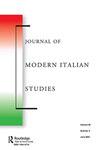The fascist breadbasket: food, empire, and modernity in Italian East Africa, 1935–1941
IF 0.7
3区 历史学
Q1 HISTORY
引用次数: 0
Abstract
ABSTRACT Food was critical to the fascist project of occupation of Ethiopia and construction of the Italian Empire in East Africa between 1935 and 1941. The plan, deployed as part of the last and most modern war of aggression in the European Scramble for Africa, included the transfer to Ethiopia of plant and animal breeding biotechnologies and the transplantation of Italian farmers to develop a massive;demographic colonization’; first in experimental model settlements, and then replacing Ethiopian biodiversity with Italian agriculture, husbandry, and civilization. The project of extraction of food resources from Ethiopia prioritized mobility – the construction of the road infrastructure necessary to transport colonial crops to the seaports on the Red Sea and from there to Italy and global markets. As the mass demographic colonization project faltered, though, the Empire absorbed food rather than produce it, and the unexpected most important function of Mussolini’s highways was to deliver high volumes of food imported from Italy to settlers. While the consumption of imported processed food represented an exciting experience of modernity and social mobility for Ethiopia’s Italians, Ethiopian armed and spontaneous resistance insisted on the disruption of the invaders’ colonial food system as the pathway to regain control of their land, agriculture, and food sovereignty.法西斯的粮仓:1935-1941年意属东非的食物、帝国和现代性
摘要食物对1935年至1941年间占领埃塞俄比亚和在东非建立意大利帝国的法西斯计划至关重要。该计划是欧洲争夺非洲的最后一场也是最现代的侵略战争的一部分,其中包括向埃塞俄比亚转让动植物育种生物技术,以及移植意大利农民以开发大规模的;人口殖民化;首先是实验性的模式定居点,然后用意大利的农业、畜牧业和文明取代埃塞俄比亚的生物多样性。从埃塞俄比亚提取粮食资源的项目优先考虑了流动性——建设将殖民作物运输到红海海港并从那里运输到意大利和全球市场所需的道路基础设施。然而,随着大规模人口殖民化项目的失败,帝国吸收而不是生产食物,墨索里尼高速公路出人意料的最重要功能是将大量从意大利进口的食物运送给定居者。虽然进口加工食品的消费代表了埃塞俄比亚意大利人对现代性和社会流动性的激动人心的体验,但埃塞俄比亚武装和自发的抵抗坚持认为,破坏入侵者的殖民粮食系统是重新控制其土地、农业和粮食主权的途径。
本文章由计算机程序翻译,如有差异,请以英文原文为准。
求助全文
约1分钟内获得全文
求助全文
来源期刊

Journal of Modern Italian Studies
Multiple-
CiteScore
1.00
自引率
25.00%
发文量
66
期刊介绍:
The Journal of Modern Italian Studies (JMIS) is the leading English language forum for debate and discussion on modern Italy. This peer-reviewed journal publishes five issues a year, each containing scholarly articles, book reviews and review essays relating to the political, economic, cultural, and social history of modern Italy from 1700 to the present. Many issues are thematically organized and the JMIS is especially committed to promoting the study of modern and contemporary Italy in international and comparative contexts. As well as specialists and researchers, the JMIS addresses teachers, educators and all those with an interest in contemporary Italy and its history.
 求助内容:
求助内容: 应助结果提醒方式:
应助结果提醒方式:


